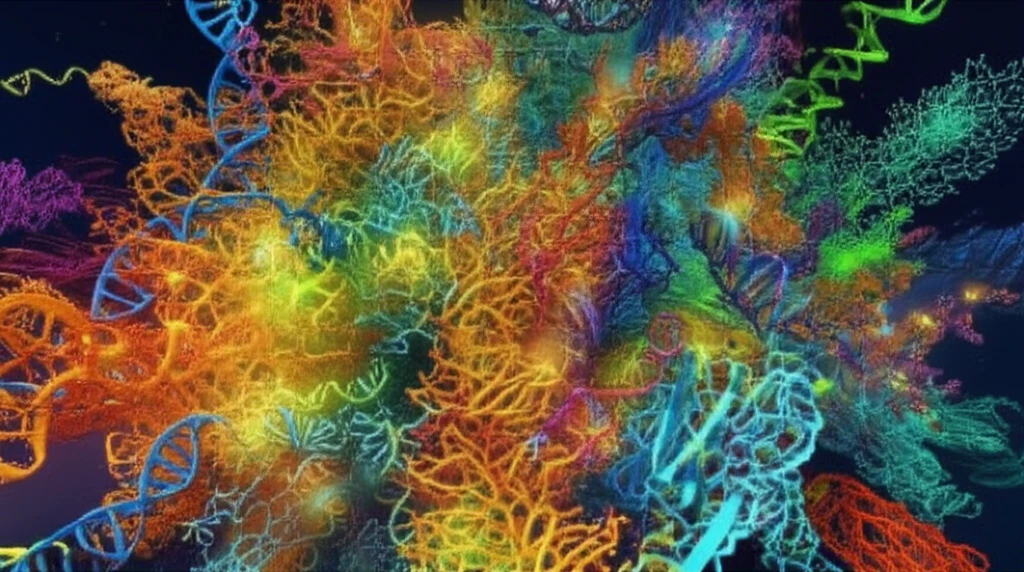
Decoding Biochemistry: Your Practical Guide to the Language of Life
"Unlock the secrets of molecular processes: A clear, accessible exploration of biochemistry for every curious mind."
Biochemistry, at its heart, is the study of life at the molecular level. It seeks to explain the structures, functions, and interactions of biological molecules that drive all living processes. While it might seem daunting, understanding biochemistry is essential for grasping the fundamentals of biology, medicine, and related fields.
This article serves as your friendly guide to navigating the world of biochemistry. We'll break down key concepts, explore their relevance, and provide practical insights—all derived from authoritative sources like leading scientific publications. Forget dense jargon and confusing diagrams; we're here to make biochemistry accessible and engaging.
Whether you're a student tackling your first biochemistry course, a healthcare professional seeking a refresher, or simply a curious individual eager to learn, this article will equip you with a foundational understanding of this fascinating field. We'll translate complex research into digestible information, empowering you to appreciate the intricate beauty of life's molecular machinery.
The Core Principles: What Biochemistry Explains

Biochemistry seeks to answer fundamental questions about how living organisms work. These inquiries span a vast range, including energy production, genetic information storage and transfer, cellular communication, and the intricate dance of enzymes catalyzing reactions. These biochemical building blocks determine everything from our physical traits to our susceptibility to disease. Biochemistry provides insights into:
- Metabolism: The network of chemical reactions that sustain life, including the breakdown of nutrients for energy (catabolism) and the synthesis of complex molecules (anabolism).
- Enzymes: Biological catalysts that speed up biochemical reactions with incredible precision and specificity.
- Proteins: Versatile molecules that perform a myriad of functions, from catalyzing reactions and transporting molecules to providing structural support and defending against pathogens.
- Nucleic Acids: The information carriers of the cell (DNA and RNA), encoding the genetic instructions that govern all cellular processes.
- Lipids: A diverse group of molecules that serve as structural components of cell membranes, energy reservoirs, and signaling molecules.
- Carbohydrates: Primary source of energy for cells, but also important structural components.
Biochemistry: The Foundation of Scientific Advancement
As we conclude this introduction to Biochemistry, it becomes clear it is more than a collection of facts and processes; it is the foundation upon which many scientific fields are built. Its principles are essential for understanding the complex mechanisms of life, offering insights into health, disease, and potential therapies.
Biochemistry is an ever-evolving field, constantly shaped by new discoveries and technological advancements. From understanding disease mechanisms to developing personalized medicine, its impact on our world is undeniable. By continuing to explore and innovate, we can unlock new possibilities for improving human health and quality of life.
This foundational knowledge empowers you to explore the subject further. Biochemistry offers endless opportunities for those seeking to unravel the mysteries of life at the molecular level. Continue exploring, asking questions, and pushing the boundaries of what we know.
